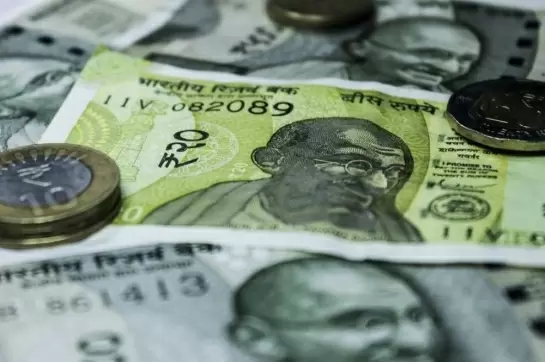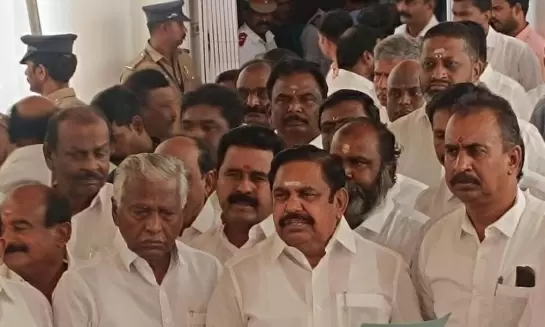NCLAT judgment finds Tata Super Board indulged in brazen majoritarianism
18-December-2019
Cyrus Mistry's petition was dismissed by the NCLT on July 9 this year. Apart from ruling that the Board of Directors was competent to remove Mistry from the post of Executive Chairman of the Tata Group, the NCLT had also held that Tata Sons cannot be prevented from becoming a private company.
In an amazing turnaround, the NCLAT on Wednesday restored Mistry as the Executive Chairman of the Tata Group. This judgement renders N. Chandrasekaran's appointment as Executive Chairman of the company illegal. However, the appellate tribunal has granted the Tata Group four weeks to file an appeal against its judgement. The restoration order will only be operational after this time period.
In a stunning judgement by Justice Sudanshu Jyoti Mukhopadhaya predicated on malafide vis a vis company law being established, the decks have been cleared for Cyrus Pallonji Mistry's return to Bombay House.
Aryamma Sundaram, counsel for Mistry, told IANS: "NCLT appeared to have gone with the Tata name and the majoritarian view in its earlier judgment. This goes against the grain of Company Law and Companies Act. If one follows the earlier path, then you don't need provisions in law which safeguard minority shareholders' rights. This was an erroneous approach. What we did as counsel was that we contested this template. It wasn't the individual right of Mr Mistry which was being trampled, it was oppression and mismanagement of the board that was in question and this directly impacted varied shareholders including million of public shareholders.
"The core values of the new Companies Act were at stake here - corporate governance, transparency of process and procedure and safeguarding the interests of all stakeholders. The reason of his removal and the manner of his removal was thus under the scanner. The action of a majority was under question for it challenged the Articles of Association. The Companies Act expects the boards of corporates to conduct their business in a manner which looks after the welfare of all shareholders and stakeholders... it doesn't act on the whims and fancies of a majority shareholder."
Reacting to the Tribunal's verdict, Tata Sons in a statement stated: "Tata Sons has received and is analysing the order of the National Company Law Appellate Tribunal (NCLAT). It is not clear as to how the NCLAT order seeks to over-rule the decisions taken by shareholders of Tata Sons and listed Tata operating companies at validly constituted shareholder meetings. The NCLAT order appears to even go beyond the specific relief sought by the appellant. Tata Sons strongly believes in the strength of its case and will take appropriate legal recourse. Tata Sons assures its various stakeholders that it not only has always operated in a fair and equitable manner but also acted in accordance with the law and will continue to do so."
Clearly a long legal fight is in order, but the apex court is the last refuge for Tata Sons and as one saw in the recent Essar Steel-Arcelor Mittal battle, the SC upheld the Tribunal's order. However, the contours of this case may well be different from that given that IBC process is not involved here but the rights of minority shareholders are.
The NCLAT judgement highlights precisely that:
** The level and scale of interference on a wide range of topics which extended well beyond legacy hotspots
** Over 550 mails were exchanged between Ratan Tata and Cyrus Mistry demonstrating the level of interference
** Such interference fostered a pattern of decision-making that led to the board headed by Mistry being undermined
More serious, the judgement fulminates against the process of removal.
** No committee was formed for removal of the incumbent chairman as required under Article 118
** Self-serving and materially misleading arguments false to the knowledge were made on the absence of any need to form a committee to remove the Chairman
** No legal opinion was taken by the Board of Directors to determine whether the removal of the Executive Chairman in such a hasty manner was in accordance with the Articles
The judgement comes down heavily against the attempt to convert Tata Sons into a private limited company in a marked departure of being a public limited company even as the matter was sub judice. Moreover, Articles 121 and 121A were introduced in 2000 and 2014 to safeguard the interests of the company, but they were blatantly misused and became 'Articles of Oppression' to further the ends of majoritarianism. The instrumentalities being Ratan Tata and Noshir Soonwala who indulged in oppressive interference, even though both held no official position once Mistry became Executive Chairman. Several examples of their interference have been laid bare by the judgment once again throwing into stark relief how majority shareholders in this case, Tata Trusts et al, acted as a Super Board who chose to ignore well-laid and statutorily recognised principles of law with regard to management of a company.
A situation which was compounded by the stealthy and illegal removal of Cyrus Mistry first as Executive Chairman and then as Director on the board of Tata Sons. IANS
New Kerala Guv Strikes Cordial Tone, Hosts CM Vijayan And FM Sitharaman In Delhi
Digital Payments Surge in India: 18,120 Crore Transactions in FY24-25
Weather Dept Predicts Heavy Rains In Several TN Districts
Chitra Subramaniam’s Book Boforsgate Exposes Arms Trade, Corruption, and Political Intrigue
Israeli Tourist Gang-Rape Case: Third Accused Nabbed in Chennai









